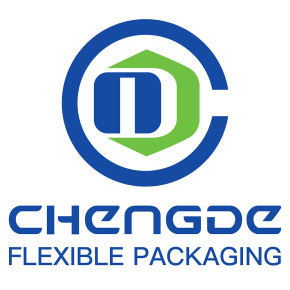The Future of Sustainable Frozen Food Packaging: Innovations and Benefits
Release time:
2025-06-13
In recent years, sustainable frozen food packaging has gained significant traction as both consumers and companies prioritize environmental responsibility. This type of packaging not only preserves food quality but also minimizes environmental harm, addressing concerns related to plastic waste and energy consumption. One of the key aspects of sustainable frozen food packaging is the use of biodegr
In recent years, sustainable frozen food packaging has gained significant traction as both consumers and companies prioritize environmental responsibility. This type of packaging not only preserves food quality but also minimizes environmental harm, addressing concerns related to plastic waste and energy consumption.
One of the key aspects of sustainable frozen food packaging is the use of biodegradable materials. Unlike conventional plastics, which can take hundreds of years to decompose, biodegradable options are designed to break down more quickly, reducing landfill contributions. Companies are exploring materials like plant-based plastics, which are derived from renewable resources, offering an eco-conscious alternative that performs well in freezing conditions.
Another innovation in sustainable frozen food packaging is the use of recyclable materials. Packaging made from widely recyclable substances, such as certain types of paper and cardboard, helps to close the loop in the packaging lifecycle. When consumers are provided with clear recycling guidelines, they are more likely to recycle, thereby reducing overall waste. This not only alleviates the burden on landfills but also encourages a circular economy where materials are reused and repurposed.
In addition to material innovations, sustainable frozen food packaging also focuses on reducing energy consumption during production and transportation. Optimizing packaging design can lead to lighter and smaller packages that consume less energy during shipping. Moreover, companies are investing in energy-efficient manufacturing processes that utilize renewable energy sources, further enhancing their sustainability profile.
The benefits of sustainable frozen food packaging extend beyond environmental impact. Companies that adopt these practices often see increased customer loyalty as consumers are increasingly drawn to brands that demonstrate a commitment to sustainability. This shift in consumer behavior is crucial in a marketplace where transparency and corporate responsibility are highly valued.
In summary, sustainable frozen food packaging represents a significant step towards reducing the food industry’s carbon footprint while maintaining the convenience and quality that consumers expect. By embracing biodegradable materials, recyclable options, and energy-efficient production methods, businesses can not only meet consumer demand for greener alternatives but also contribute to a more sustainable planet. As the industry continues to evolve, the focus on sustainable practices will undoubtedly play a pivotal role in shaping the future of food packaging, promoting eco-friendly solutions that benefit both businesses and the environment.
One of the key aspects of sustainable frozen food packaging is the use of biodegradable materials. Unlike conventional plastics, which can take hundreds of years to decompose, biodegradable options are designed to break down more quickly, reducing landfill contributions. Companies are exploring materials like plant-based plastics, which are derived from renewable resources, offering an eco-conscious alternative that performs well in freezing conditions.
Another innovation in sustainable frozen food packaging is the use of recyclable materials. Packaging made from widely recyclable substances, such as certain types of paper and cardboard, helps to close the loop in the packaging lifecycle. When consumers are provided with clear recycling guidelines, they are more likely to recycle, thereby reducing overall waste. This not only alleviates the burden on landfills but also encourages a circular economy where materials are reused and repurposed.
In addition to material innovations, sustainable frozen food packaging also focuses on reducing energy consumption during production and transportation. Optimizing packaging design can lead to lighter and smaller packages that consume less energy during shipping. Moreover, companies are investing in energy-efficient manufacturing processes that utilize renewable energy sources, further enhancing their sustainability profile.
The benefits of sustainable frozen food packaging extend beyond environmental impact. Companies that adopt these practices often see increased customer loyalty as consumers are increasingly drawn to brands that demonstrate a commitment to sustainability. This shift in consumer behavior is crucial in a marketplace where transparency and corporate responsibility are highly valued.
In summary, sustainable frozen food packaging represents a significant step towards reducing the food industry’s carbon footprint while maintaining the convenience and quality that consumers expect. By embracing biodegradable materials, recyclable options, and energy-efficient production methods, businesses can not only meet consumer demand for greener alternatives but also contribute to a more sustainable planet. As the industry continues to evolve, the focus on sustainable practices will undoubtedly play a pivotal role in shaping the future of food packaging, promoting eco-friendly solutions that benefit both businesses and the environment.
Related News

